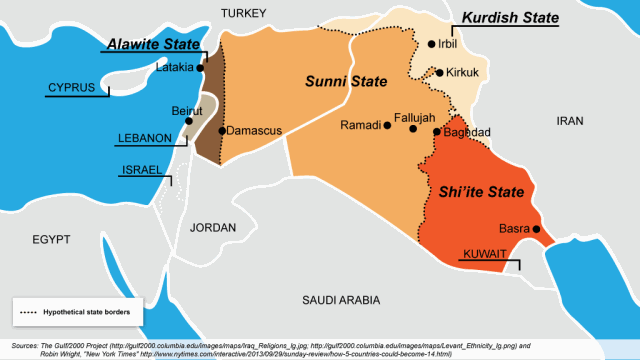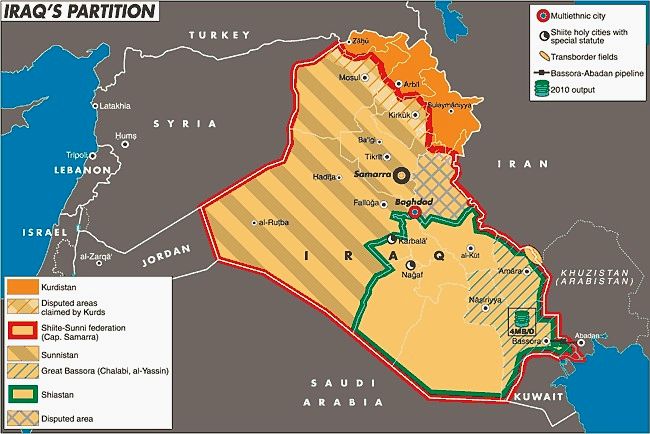How pathetic is the Iraqi state’s army? It had 15 divisions, each of 20,000-some men (on paper), but experience shows it may as well have had no army at all. ISIS captured Mosul with an assault force a fraction of the size of one Iraqi Army division (allegedly under 2,000 fighters). This week, the Iraqi government has finally admitted that its army is full of fake soldiers. This has been pointed out many times by the excellent Middle East journalist Patrick Cockburn whom I have followed for much of this year.
Iraq’s 50,000 Ghost Soldiers
By Patrick Cockburn [The Independent, UK]The Iraqi army has long been notorious for being wholly corrupt with officers invariably paying for their jobs in order to make money either through drawing the salaries of non-existent soldiers or through various other scams. One Iraqi politician told The Independent a year ago that Iraqi officers “are not soldiers, they are investors”. In the years before the defeat of the army in Mosul in June by a much smaller force from Isis, Iraqi units never conducted training exercises. At the time of Isis’s Mosul offensive, government forces in Mosul were meant to total 60,000 soldiers and federal police but the real figure was probably closer to 20,000.
“Ghost” soldiers may never have existed and just be fictitious names added to the roster, or they may once have existed but been killed or deserted without this being officially noted. In either case, the officer in a unit would keep receiving the salary, though he would have to share it with his superiors. Another scam is for soldiers to kick back part of their salary to their officer in return for staying at home or holding another job but never going near a barracks. Mr Abadi’s figure of 50,000 is probably only a modest estimate of the numbers of Iraqi soldiers who play no military role.
[…] [T]he Iraqi government might be paying for a battalion with a nominal strength of 600 men, but which in fact had only 200 soldiers. Profits would be shared between officers and commercial companies supposedly supplying the army.
Another source of earnings for officers are checkpoints on the roads which act like customs barriers on national frontiers. All goods being transported have to pay a tariff and this will again go into the pockets of the officer corps. These will have paid highly for promotion, with the bribe for becoming a colonel $200,000 (£127,000) and a divisional commander $2m. This money would usually be borrowed and paid back out of earnings.
When fighting began in Anbar province at the start of this year as Isis seized territory, Iraqi army units often found that the supply system was so corrupt and dysfunctional that they did not receive enough food or even ammunition.[From “Iraq’s 50,000 Ghost Soldiers” by Patrick Cockburn, Middle East corespondent for The independent (UK)]
One proposal, from a thinktank based at Columbia University, partitions Syria and Iraq into four new states: a Sunni-Arab state, a Shia-Arab state, a Kurd state, and an Alawite-Christian state. Why not? Here is their proposal:


